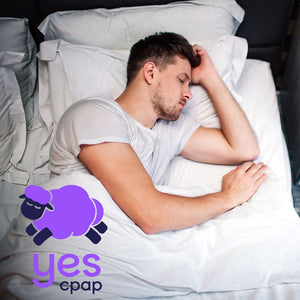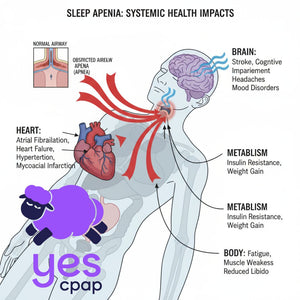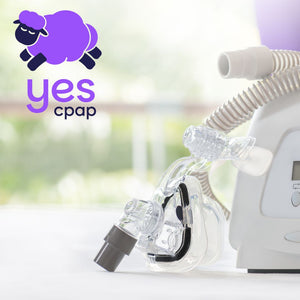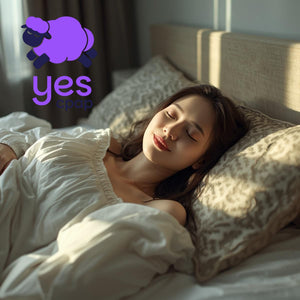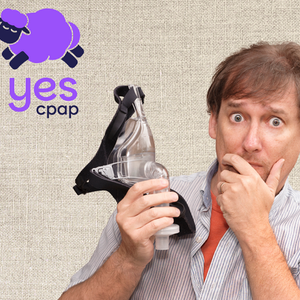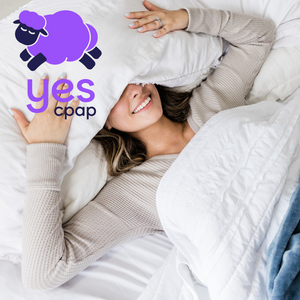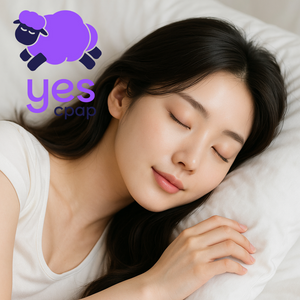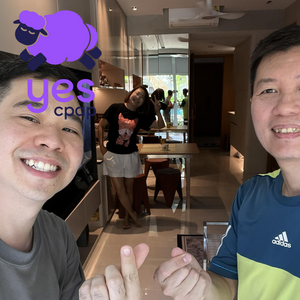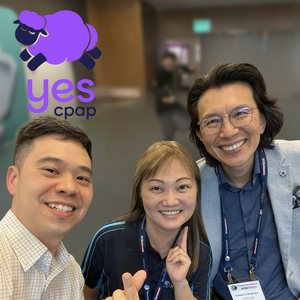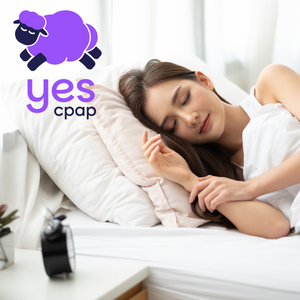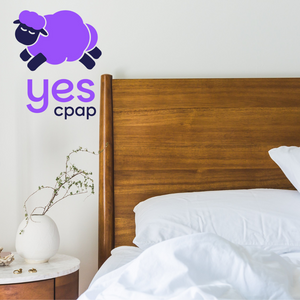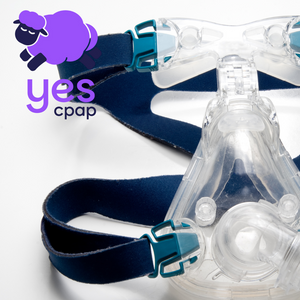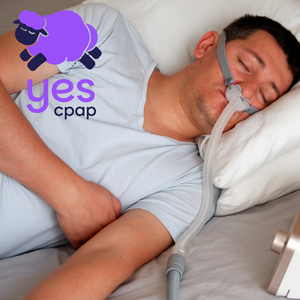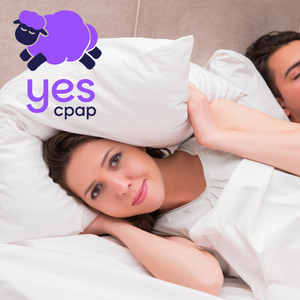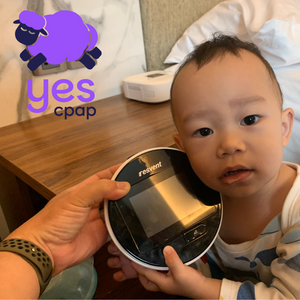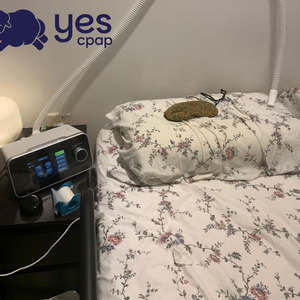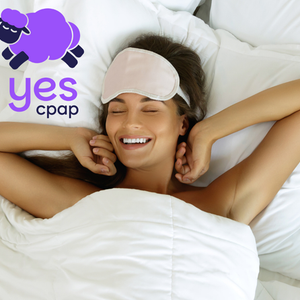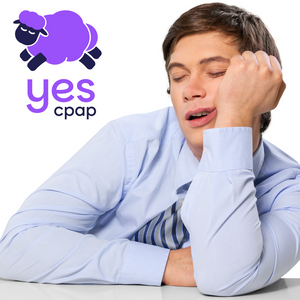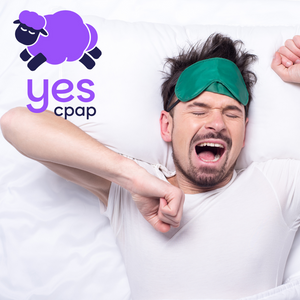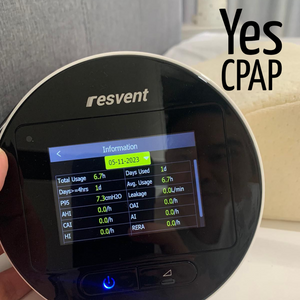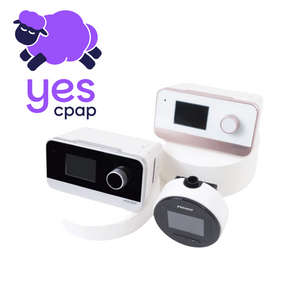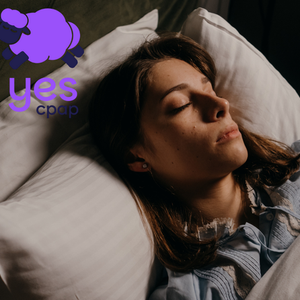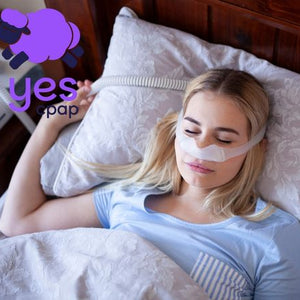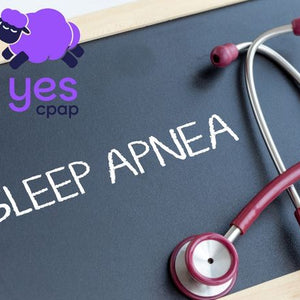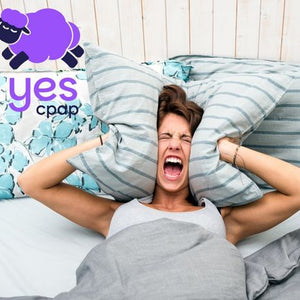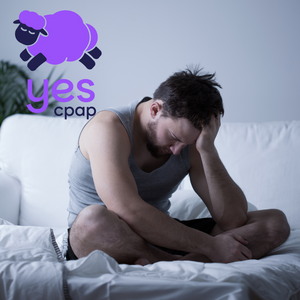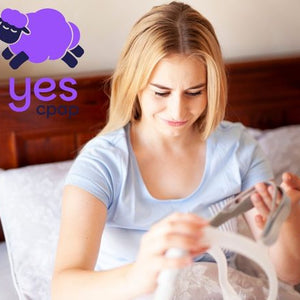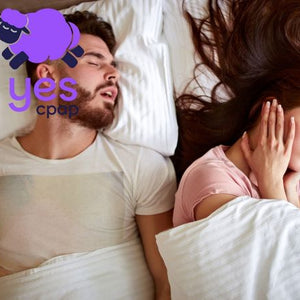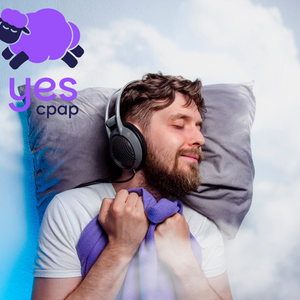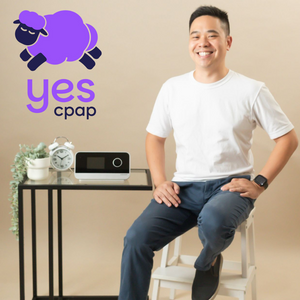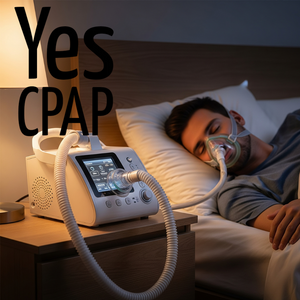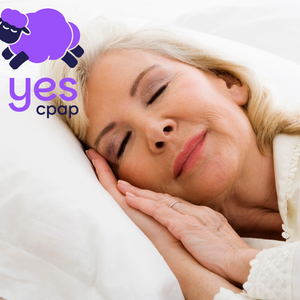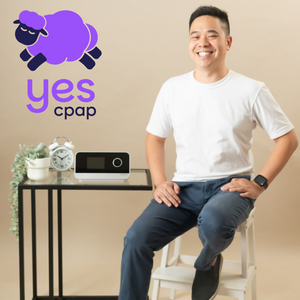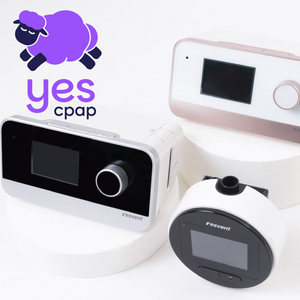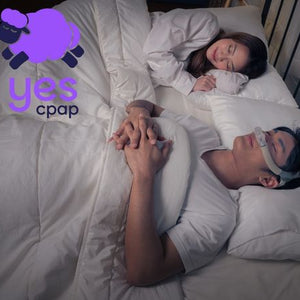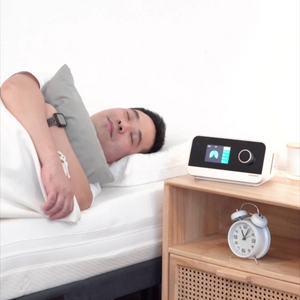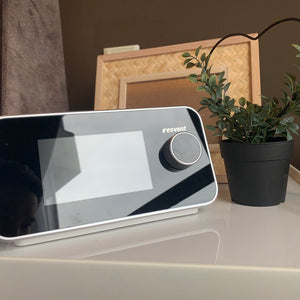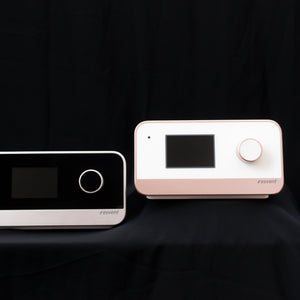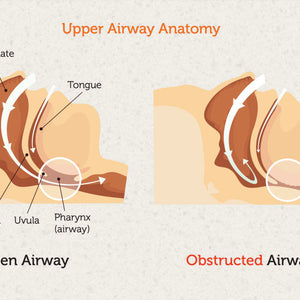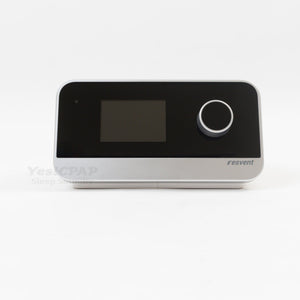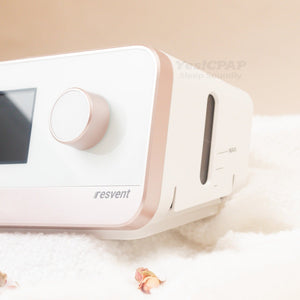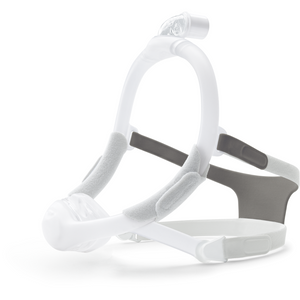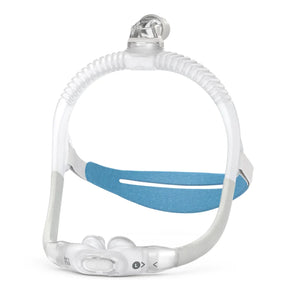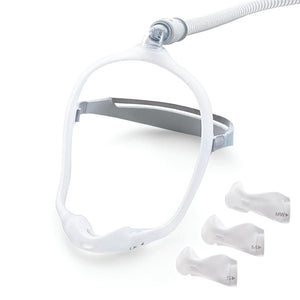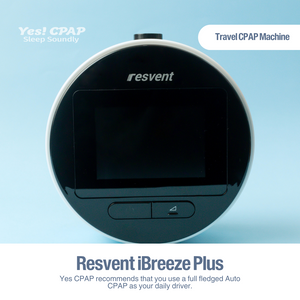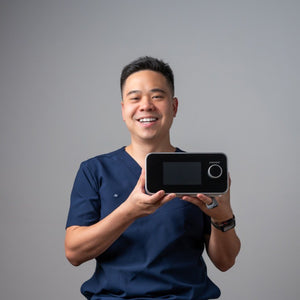Singapore's tropical climate creates unprecedented challenges for sleep apnea patients, with the island nation recording Southeast Asia's highest obstructive sleep apnea prevalence at 30.5% among adults. The combination of year-round humidity averaging 84% and temperatures consistently between 27-32°C demands specialized CPAP maintenance protocols that differ dramatically from global recommendations.
Managing continuous positive airway pressure therapy effectively in Singapore's humid environment requires understanding how tropical conditions affect equipment performance, implementing adapted cleaning routines, and selecting appropriate devices designed for high-moisture climates. For those new to CPAP therapy, our comprehensive CPAP setup guide Singapore provides essential first-time user information tailored for local conditions.
Understanding Singapore's Climate Impact on CPAP Therapy
The Humidity Challenge
Persistent Moisture Problems - Singapore's relentless humidity creates ideal conditions for CPAP condensation issues, with "rainout" incidents occurring 3-4 times more frequently than temperate climates. This phenomenon happens when humid air meets cooler surfaces inside CPAP tubing, creating water droplets that disrupt therapy and potentially damage sensitive electronic components.
Bacterial Growth Acceleration - The tropical environment accelerates bacterial and mold growth in CPAP equipment by up to 400% compared to dry climates. Without proper maintenance protocols adapted for Singapore conditions, users risk developing respiratory infections within 48-72 hours of inadequate cleaning. Our CPAP cleaning supplies collection offers specialized products designed for tropical maintenance requirements.
Equipment Degradation - High humidity combined with temperature fluctuations from constant air conditioning use causes faster deterioration of silicone seals, plastic components, and internal mechanisms. CPAP devices in Singapore typically require replacement 18-24 months earlier than manufacturer specifications suggest.
Temperature Differential Complications
Air Conditioning Impact - Singapore's ubiquitous air conditioning creates temperature differentials exceeding 15°C between bedroom environments and ambient conditions. These dramatic variations affect CPAP humidification requirements throughout the night, with many users experiencing therapy disruption during the critical REM sleep phases.
Seasonal Variations - During monsoon seasons (November-January), ambient humidity can reach 95%, while the dry season (February-April) still maintains 75-80% humidity levels. CPAP settings require monthly adjustments to accommodate these variations for optimal therapy effectiveness.
Essential Equipment for Singapore CPAP Users
Resvent iBreeze Auto CPAP with Heated Humidifier - $1,400 SGD
The Resvent iBreeze Auto CPAP available exclusively through Yes CPAP Singapore represents the optimal solution for humid climate management. This advanced device features intelligent humidification technology that automatically detects ambient moisture and temperature, continuously adjusting humidity output to prevent the condensation buildup that plagues Singapore users.
Technical Specifications:
-
Pressure range: 4-20 cm H2O with automatic titration
-
Sound level: 28 decibels (library-quiet operation)
-
Integrated heated humidifier with precise water level monitoring
-
Leak compensation algorithm for humid climate seal challenges
-
Auto-altitude adjustment (optimized for Singapore's sea-level conditions)
-
Power consumption: 65W maximum, 12W average operation
The device's proprietary leak compensation technology proves particularly valuable in Singapore, where mask seal integrity frequently compromises due to increased facial moisture and temperature variations. For detailed specifications and comparison with other models, visit our complete CPAP machines Singapore guide.
Resvent iBreeze Pro Auto CPAP - $1,500 SGD
The Pro version offers enhanced features specifically beneficial for Singapore's challenging environment. Advanced data tracking stores up to one year of detailed sleep data, enabling users and healthcare providers to identify humidity-related therapy patterns and optimize settings accordingly.
Additional Pro Features:
-
Intelligent tube drying function (essential for tropical humidity)
-
Advanced humidification algorithms with 20 precision settings
-
WiFi connectivity for remote monitoring and adjustments
-
Automatic pressure relief during exhalation
-
Smart ramp technology with humidity synchronization
The additional $100 investment provides automated maintenance features that significantly reduce daily cleaning requirements while ensuring optimal therapy effectiveness in Singapore's demanding climate.
Mask Selection for Humid Conditions
Philips Dreamwear Silicone Pillows Mask - $200 SGD - This innovative nasal pillow design minimizes facial contact surface area, dramatically reducing moisture trapping around the nose and mouth that commonly affects Singapore users. The under-the-nose configuration allows superior air circulation around the face, preventing the excessive heat and moisture buildup typical with full-face masks in tropical climates.
Resmed P30i CPAP Mask - $250 SGD - Features revolutionary top-of-head tubing connection that eliminates hose weight on the face while reducing drag during sleep movements. The minimal contact design prevents excessive sweating and moisture accumulation, addressing the primary comfort complaints from Singapore CPAP users.
Philips Dreamwisp Mask - $200 SGD - Incorporates unique frame geometry that positions sealing surfaces under the nose rather than over it, providing excellent seal integrity even with increased facial moisture from Singapore's persistent humidity. The design accommodates natural sleep movement while maintaining therapy pressure throughout the night.
For comprehensive mask selection guidance, our CPAP mask fitting guide helps users choose optimal interfaces for Singapore's humid conditions.
Daily Maintenance Protocol for Singapore Conditions
Comprehensive Morning Routine (8-12 Minutes)
Immediate Equipment Shutdown - Upon waking, immediately power down the CPAP machine and disconnect all components to prevent continued moisture accumulation. Singapore's humidity means residual moisture in tubing or chambers can promote dangerous bacterial growth within 2-3 hours rather than the 24-48 hours typical in dry climates.
Complete Water Chamber Evacuation - Remove all remaining water from the humidifier chamber, regardless of quantity. Even minimal water left in Singapore's humid conditions becomes a concentrated breeding ground for microorganisms that can cause serious respiratory infections, including Legionnaires' disease and pneumonia.
Intensive Mask Sanitization - Wash mask cushion, frame, and headgear immediately with warm water and medical-grade antibacterial soap. The combination of facial oils, persistent humidity, and skin contact creates optimal bacterial growth conditions requiring immediate intervention rather than delayed cleaning.
Active Tubing Ventilation - Rinse tubing thoroughly with warm water, ensuring complete drainage, then position components near air conditioning vents or fans for accelerated drying. Standard air-drying in Singapore's humid environment can require 8-12 hours versus 2-3 hours with forced air circulation. Quality CPAP tubing and accessories designed for tropical use can significantly improve drying efficiency.
Filter Inspection and Cleaning - Check and clean reusable filters daily rather than weekly, as Singapore's air quality combined with humidity accelerates filter contamination. Replace disposable filters bi-weekly instead of monthly to maintain optimal air quality and machine performance.
Evening Preparation Protocol
Fresh Water Replacement - Always use newly opened distilled water, never reusing leftover water which accumulates bacteria in humid conditions. Singapore's treated water contains chlorine and mineral deposits that concentrate in humidifier chambers, potentially damaging equipment and affecting therapy quality.
Complete Dryness Verification - Verify all components are completely dry before assembly, as even minimal moisture can damage internal motors and create overnight mold growth. Use lint-free cloths to ensure no residual moisture remains on any surfaces.
Seal Integrity Assessment - Inspect mask cushions for hardening, cracking, or discoloration which occurs 50% faster in Singapore's environment due to accelerated material degradation. Replace cushions monthly rather than quarterly to maintain proper seal and prevent therapy leaks. Our CPAP replacement parts collection stocks all essential components for timely maintenance.
Weekly Deep Cleaning for Tropical Conditions
Comprehensive Sanitization Protocol (25-35 Minutes)
Extended Component Soaking - Soak all removable parts in warm water with medical-grade antibacterial soap for 45 minutes minimum. Singapore's persistent humidity requires extended sanitization periods to eliminate biofilm formation that standard cleaning cannot address.
Specialized Tubing Maintenance - Use dedicated CPAP tubing brushes to scrub interior surfaces, concentrating on connection points where moisture typically accumulates. Biofilm formation occurs within 72 hours in humid climates, requiring mechanical removal that simple rinsing cannot achieve.
Humidifier Chamber Deep Sterilization - Create 1:1 white vinegar solution for 20-30 minute soaking to dissolve mineral deposits and eliminate humidity-loving bacteria. The acetic acid effectively neutralizes alkaline bacterial environments while removing Singapore's hard water mineral buildup.
Machine Interior Cleaning - Use compressed air to blow out internal vents and air pathways monthly. Singapore's humid air introduces more contaminants into machine interiors, requiring proactive cleaning to prevent mechanical failures.
Complete Air-Drying Cycle - After cleaning, allow all components to air-dry for minimum 4-6 hours in air-conditioned environment before storage. Humid conditions require extended drying periods to prevent immediate re-contamination.
Humidity Control Strategies
Advanced Humidifier Optimization
Seasonal Setting Adjustments - Reduce humidifier settings by 2-3 levels below manufacturer recommendations during Singapore's wettest months. Ambient humidity often provides sufficient moisture, making additional humidification counterproductive and causing condensation problems.
Intelligent Temperature Management - Utilize machines with heated tubing capabilities to maintain consistent air temperature throughout the delivery system. The Resvent iBreeze series automatically adjusts for Singapore's conditions, preventing the temperature differentials that cause therapy-disrupting condensation.
Environmental Coordination - Position CPAP machines 2-3 feet below head level to encourage natural condensate drainage toward the machine rather than into the mask. Use dedicated bedroom dehumidifiers to maintain 55-65% humidity levels instead of Singapore's typical 84%.
Condensation Prevention Techniques
Heated Tubing Advantages - Heated tubing maintains consistent temperature throughout the air delivery system, reducing rainout incidents by up to 85%. This feature proves particularly valuable in Singapore where temperature differentials between air-conditioned bedrooms and outdoor conditions regularly exceed 15°C.
Insulation Solutions - For machines without heated tubing, use specialized fleece tubing wraps or insulation sleeves to maintain temperature consistency. These provide effective barrier protection in Singapore's dramatic air-conditioned environments.
Strategic Machine Placement - Keep CPAP units away from direct air conditioning airflow while ensuring adequate ventilation. Position devices on stable, room-temperature surfaces away from cold walls or surfaces that promote condensation formation.
Product-Specific Maintenance Guidelines
Resvent iBreeze Series Optimization
Intelligent Humidification Calibration - The iBreeze's automatic humidity detection system requires bi-weekly recalibration in Singapore's variable conditions. Access the advanced settings menu and run auto-calibration to ensure optimal humidity compensation throughout changing weather patterns.
Water Level Monitoring System - The integrated sensor automatically adjusts heating when water levels drop, but Singapore's high evaporation rates require daily monitoring. Check levels before each use as tropical humidity accelerates water consumption by 40-60% compared to temperate climates.
Smart Ramp Customization - Extend smart ramp duration by 10-15 minutes to accommodate the additional time required for humidity equilibrium in tropical conditions. This adjustment prevents therapy disruption during the critical sleep initiation phase.
Data Analysis Utilization - Use the Pro model's comprehensive data storage to track humidity-related therapy patterns. Identify correlation between weather conditions and therapy effectiveness to proactively adjust settings.
Mask-Specific Care Instructions
Silicone Component Preservation - Apply thin coating of medical-grade silicone lubricant monthly to extend component life in Singapore's aggressive humidity. This prevents premature hardening and cracking that occurs 3-4 times faster in tropical conditions.
Headgear Fabric Management - Wash fabric headgear components every 2-3 days using antibacterial laundry detergent. The combination of humidity, perspiration, and skin oils creates odor and bacterial problems requiring aggressive management beyond temperate climate recommendations.
Accelerated Drying Protocols - Position cleaned mask components near air conditioning vents or use dedicated equipment dryers. Standard air-drying requires 6-8 hours in Singapore versus 2-3 hours with active air circulation.
Troubleshooting Common Singapore CPAP Issues
Persistent Condensation Management
Multi-Modal Intervention - Combine reduced humidifier settings with heated tubing and room dehumidification for comprehensive control. Single-solution approaches rarely address Singapore's extreme humidity adequately, requiring integrated environmental management.
Therapy Timing Optimization - Begin CPAP operation 45 minutes before sleep to achieve system equilibrium with room conditions. This pre-conditioning significantly reduces initial condensation formation during therapy initiation.
Equipment Upgrade Considerations - Upgrade to advanced humidity management systems like the Resvent iBreeze Pro when standard adjustments prove insufficient. The investment often proves cost-effective compared to ongoing condensation-related therapy disruptions.
Mask Seal Degradation Solutions
Accelerated Replacement Scheduling - Replace mask cushions every 3-4 weeks instead of standard 6-8 week intervals. Singapore's humidity accelerates silicone breakdown, affecting seal integrity and therapy effectiveness more rapidly than manufacturers anticipate.
Daily Seal Verification - Perform nightly mask seal assessments by listening for audible leaks during pressure buildup. Humidity-related degradation occurs gradually, requiring vigilant daily monitoring to prevent therapy compromise.
Rotation Strategy Implementation - Alternate between different mask styles seasonally to prevent over-dependence on single seal points that degrade faster in humid conditions. This approach extends overall equipment life while maintaining therapy quality.
Equipment Longevity Enhancement
Environmental Protection - Store unused CPAP equipment in sealed containers with commercial desiccant packets. This proves particularly important for backup equipment or travel units exposed to Singapore's persistent humidity.
Professional Maintenance Scheduling - Arrange annual professional equipment servicing rather than standard 18-month intervals. Singapore's demanding conditions require more frequent technical maintenance to ensure optimal long-term performance.
Predictive Replacement Planning - Budget for equipment replacement 12-18 months earlier than manufacturer specifications due to humidity-related component stress. Proactive replacement prevents therapy disruption from unexpected equipment failures.
Cost-Effective Maintenance Solutions
DIY Cleaning Optimization
Vinegar-Based Sanitization - Create effective cleaning solutions using 1:3 white vinegar to distilled water ratios for weekly deep sanitization. This approach costs 60-70% less than commercial CPAP cleaners while providing superior antimicrobial action against humidity-loving bacteria.
Bulk Supply Economics - Purchase distilled water in 5-liter containers rather than small bottles to reduce operational costs. Singapore users consume 40-60% more humidifier water than temperate climate users due to increased evaporation rates.
Generic Component Strategy - Use OEM parts for critical components like masks and tubing while considering quality generic options for filters and basic accessories. Reputable generic filters provide 90-95% of OEM performance at 30-40% cost reduction.
Replacement Part Management
Strategic Bulk Purchasing - Buy mask cushions, filters, and accessories during promotional periods to manage accelerated replacement schedules economically. Yes CPAP Singapore offers free island-wide shipping on orders over $200, making bulk purchases highly cost-effective.
Seasonal Stock Rotation - Maintain 2-3 month inventory of essential replacement parts to prevent therapy interruption. Singapore's import dependencies can create supply delays during peak demand periods.
For convenient maintenance supply management, our CPAP maintenance kits include all essential components optimized for Singapore's tropical conditions.
Advanced Humidity Management Techniques
Environmental Control Integration
Climate Coordination Systems - Synchronize bedroom dehumidification with CPAP humidification for optimal therapy environments. Target 55-65% room humidity levels while allowing CPAP humidifiers to provide supplemental moisture as individually required.
Air Circulation Enhancement - Install ceiling fans on timer systems to promote gentle air movement without creating pressure-disrupting drafts. Improved circulation prevents moisture accumulation around equipment while maintaining therapy integrity.
Technology Integration Solutions
Smart Home Connectivity - Connect humidity sensors to automated home systems for responsive environmental adjustment. Modern systems can automatically adjust room dehumidification based on detected CPAP usage patterns.
Data-Driven Optimization - Utilize the Resvent iBreeze Pro's extensive data logging to identify humidity-related therapy patterns. Statistical analysis helps predict and prevent condensation problems before they disrupt therapy.
Professional Support and Singapore Resources
Yes CPAP Singapore Expertise
Specialized Professional Guidance - Jo Ng, RPSGT (Registered Polysomnographic Technologist) provides personalized equipment setup and optimization specifically adapted for Singapore's unique tropical challenges. This local expertise proves invaluable for navigating humidity-related therapy complications that international guidelines don't address. Schedule a professional CPAP consultation Singapore to optimize your therapy setup.
Comprehensive Ongoing Support - Yes CPAP Singapore offers complete therapy management including equipment selection, insurance coordination with Medisave coverage, and continuous optimization support. Local expertise ensures equipment performs optimally throughout Singapore's varied seasonal conditions.
Convenient Service Access - Island-wide delivery and setup services eliminate transportation challenges while ensuring proper equipment installation. Professional setup prevents the common configuration errors that lead to humidity-related therapy problems.
Healthcare System Integration
Sleep Clinic Coordination - Yes CPAP Singapore works directly with Singapore's major sleep centers including Singapore General Hospital, Mount Elizabeth, and Raffles Medical to ensure seamless therapy transition. This coordination eliminates common gaps between diagnosis and effective therapy implementation.
Insurance Navigation - Expert guidance through Singapore's complex medical insurance landscape, including Medisave utilization and private insurance claims processing. Professional assistance ensures maximum coverage for equipment and ongoing supplies. Learn more about CPAP insurance Singapore options to maximize your benefits.
Regulatory Compliance - All equipment meets HSA (Health Sciences Authority) requirements for medical device safety and efficacy. Compliance ensures equipment quality while providing legal protection for users.
Frequently Asked Questions
How often should I clean my CPAP in Singapore's humid weather?
Daily cleaning is essential in Singapore's tropical climate due to accelerated bacterial growth. Clean mask components every morning with warm soapy water, empty the humidifier chamber completely, and ensure thorough drying before evening use. Weekly deep cleaning with vinegar solution is required rather than monthly cleaning recommended in temperate climates.
Why does my CPAP tubing have water in it every morning?
Rainout occurs when humid air condenses inside cooler tubing, a common problem in Singapore's air-conditioned bedrooms. Solutions include using heated tubing, reducing humidifier settings by 1-2 levels, positioning the machine below bed level, and insulating tubing with covers. The Resvent iBreeze series automatically compensates for these conditions.
How do I prevent mold growth in my CPAP equipment?
Complete daily drying is critical - use air conditioning or fans to accelerate the process. Never store wet components, use only distilled water, and perform weekly vinegar soaks for all removable parts. Store equipment in sealed containers with desiccant packets when not in use.
Should I adjust my CPAP settings for Singapore's seasons?
Yes, seasonal adjustments are necessary - reduce humidity settings by 2-3 levels during monsoon months (November-January) when ambient humidity reaches 95%. Increase settings slightly during drier months but monitor for condensation daily. The Resvent iBreeze automatically adjusts for these variations.
What type of water should I use in Singapore?
Always use distilled water only - Singapore's treated tap water contains chlorine and minerals that damage equipment and promote bacterial growth in humid conditions. Never reuse water from previous nights as bacteria multiply rapidly in tropical temperatures.
How often should I replace CPAP parts in Singapore?
Replacement schedules accelerate significantly - mask cushions every 3-4 weeks instead of 6-8 weeks, filters bi-weekly instead of monthly, and tubing every 2-3 months. Humid conditions cause faster silicone degradation and require more frequent replacements than manufacturer recommendations.
Why does my mask leak more in Singapore than other places?
Humidity affects seal integrity through increased facial moisture, sweat, and faster silicone degradation. Clean mask daily, check cushion condition weekly, and consider nasal pillow masks that minimize facial contact area. The P30i and Dreamwear masks perform better in humid conditions.
Can I use a regular humidifier with my CPAP in Singapore?
Not recommended - room humidifiers can worsen condensation problems when combined with Singapore's existing high humidity. Instead, use bedroom dehumidifiers to maintain 55-65% room humidity while letting CPAP humidifiers provide therapeutic moisture.
What should I do if my CPAP stops working in humid weather?
Check for moisture damage first - remove all water from internal components, ensure complete drying for 24 hours in air-conditioned space. Clean air intake filters and vents with compressed air monthly. Contact Yes CPAP Singapore for professional assessment if problems persist after drying.
How do I travel with CPAP equipment in Singapore's climate?
Use sealed storage containers with desiccant packets, pack extra replacement parts, and allow extended drying time between uses. The Resvent iBreeze Pro's intelligent humidity detection adapts to different environments automatically. Consider portable dehumidifiers for extended stays in humid locations.
Successfully managing CPAP therapy in Singapore's challenging humid climate requires comprehensive understanding of tropical conditions' impact on equipment performance, implementation of adapted maintenance protocols, and selection of appropriate devices designed for high-moisture environments. The combination of quality equipment like the Resvent iBreeze series, professional local support from Yes CPAP Singapore, and dedicated attention to humidity-specific maintenance ensures effective sleep apnea treatment despite Southeast Asia's most challenging climate conditions.
Through proper equipment selection, environmental management, and professional guidance, Singapore's 30.5% of adults suffering from obstructive sleep apnea can achieve the restful, healthy sleep essential for optimal quality of life in this demanding tropical environment. For ongoing support and expert guidance, contact our CPAP support team Singapore for personalized assistance with your tropical climate therapy challenges.




